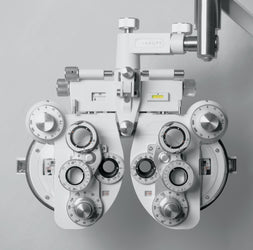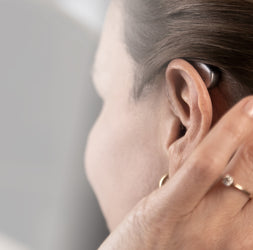Managing Hearing Loss
The severity of cognitive decline is more likely to increase as hearing problems worsen, and untreated hearing loss can lead to dementia as a possible consequence. A study revealed that older adults with hearing loss had a similar rate of cognitive decline as their normal-hearing peers in 7.7 years and 10.9 years, respectively.Preventing midlife hearing loss could reduce up to 9% of new dementia cases, which is the highest percentage among all potentially controllable risk factors identified in a commissioned report published in The Lancet in 2017.
How Hearing Loss can lead to Dementia
The correlation between hearing loss and dementia is significant. Experts suggest that hearing loss may contribute to dementia through various means, such as cognitive overload, brain structure, and social isolation.- Cognitive load - Continuously straining to hear and comprehend puts undue stress on the brain. The resources typically devoted to storing spoken information in memory are instead expended on comprehending it initially.
- Brain structure - Hearing loss could impact the brain's structure, leading to cognitive problems. Imaging studies of older adults with hearing loss show that they have less grey matter in the area of the brain that receives and processes sounds from the ears. Certain brain cell structures may shrink when they don't receive enough stimulation.
- Social isolation - When it becomes difficult to hear and participate in conversations, you may choose to remain at home instead of going out and socializing. However, withdrawing from your friends, family, and activities can lead to reduced social engagement. Insufficient stimulation throughout the day increases the risk of developing dementia.
Take good care of your hearing
Maintaining good hearing health is crucial for maintaining a healthy brain. As a result, it's critical to address any hearing loss as soon as possible. In our practices, we provide the best quality hearing services for our patients, including free ear health checks, correction options and aftercare, as well as earwax removal.Correction is key
Prevent your hearing loss from worsening and keep your grey cells healthy!Hearing aids are an excellent way to treat low or moderate hearing loss, depending on the specific type. Cochlear implants may be the best option for severe or profound hearing loss. Should you need correction after your initial assessment, our hearing care specialists can assist you in determining the best correction options for you.Book a free hearing assessment with our audiologist below:
BOOK A FREE HEARING ASSESSMENT
You can also book by getting in touch with Eye Emporium Stratford or Open Eye Opticians.
Online Hearing Test
If you are not quite ready for an appointment yet, you can take our free online hearing test. However, please note that this only provides an indication of the state of your ear health and it’s not a medical diagnosis. If you suspect you have a problem with your hearing, please speak to our hearing specialist.*Source - World Health Organization (WHO) website, article published September 2, 2021.







